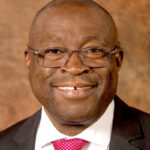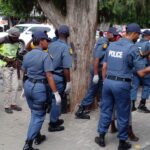Public Enterprises Minister, Pravin Gordhan, says the department has mobilised full resources with Eskom to ensure that the current load shedding crisis is resolved.
The power utility has been battling breakdowns and slow returns to service of generation units, which has led to the country being plunged to Stage 6 load shedding.
This has now been reduced to Stage 5 following the return to service of some units.
“We are deeply mindful of the strain that this places on households and businesses in the country. We are alive to the fact that load shedding impacts on households [and] businesses, and disrupts the daily lives of South Africans.
“We have mobilised the full resources of our teams, together with Eskom, to address this immediate challenge of load shedding. All efforts are directed towards returning megawatts due to unplanned breakdowns and outages,” Gordhan said.
He explained that the department has met with Eskom to implement immediate solutions to “ensure the current generation fleet provides reliable electricity to the country”.
These efforts include:
- The approval of the emergency procurement of 1 000 MW from Independent Power Producers (IPPs) and industrial co-generators, which could bring more capacity onto the grid within two months.
- Eskom has been granted approval to procure an extra 200MW from the Southern African Power Pool.
- Ensuring reliable maintenance of power stations and plants through the recruitment of former experienced employees and energy experts.
- Some 18 energy specialists in power plant operations have been brought in to assist with operations.
- The Department of Mineral Resources and Energy has, through the work of the National Energy Crisis Committee (NECOM), initiated Bid Windows 5 and 6 to bring more megawatts to the grid.
According to Gordhan, NECOM has already initiated visits to power stations in order to gauge and asses the challenges Eskom is facing and identify solutions.
“This information will further assist the implementation of the energy actions, as announced by President Cyril Ramaphosa in July 2022, and the work of the energy crisis committee is already at an advanced stage.”












